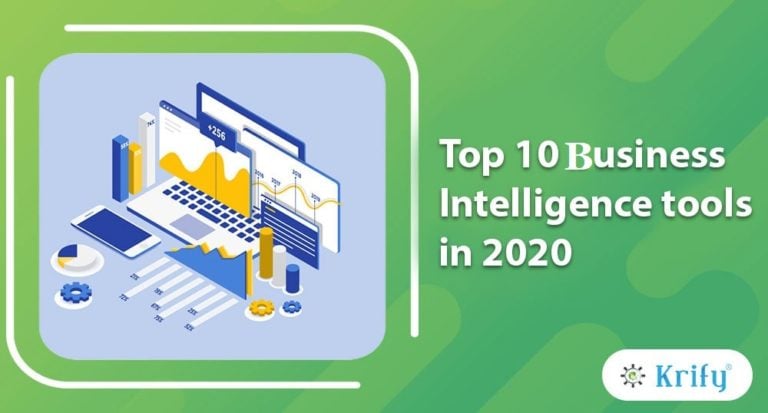Top 10 Business Intelligence Tools in 2025 promises to unveil the cutting-edge technologies that will shape the landscape of data analysis and decision-making in the coming years. As businesses increasingly rely on data to drive strategy and performance, understanding the best tools available becomes vital. This overview dives into the significance of business intelligence, highlighting how these tools can enhance operations, foster innovation, and provide a competitive edge.

In an era where data is deemed the new oil, the right business intelligence tools can transform raw information into actionable insights. With advancements in AI and machine learning, the tools of 2025 will not only offer enhanced analytics but also integrate seamlessly into business workflows, making data-driven decision-making more accessible than ever.
In today’s fast-paced digital world, the ability to adapt and thrive in various environments is crucial for both individuals and businesses. As technology continues to evolve at an unprecedented pace, it’s essential to stay informed about the latest trends and developments to maintain a competitive edge. This article explores the significance of adaptability and resilience in both personal and professional spheres, providing insights on how to cultivate these important traits.Adaptability is the capacity to adjust to new conditions, whether in personal life or the workplace.
In a professional context, this could mean embracing changes in technology, company policies, or market demands. For instance, the rise of remote work necessitated significant adjustments from both employers and employees. Organizations had to pivot quickly, updating their communication strategies and technology infrastructures, while employees had to adapt to new routines and work environments. Those who embraced these changes often found themselves thriving in their roles, while others struggled to keep up.One effective way to enhance adaptability is through continuous learning.
Embracing a mindset of lifelong learning encourages individuals to seek out new skills and knowledge constantly. This could involve pursuing formal education, attending workshops, or simply staying informed about industry trends through articles and podcasts. By remaining curious and open to new experiences, individuals can better navigate changes and challenges that arise.Moreover, fostering a culture of adaptability within a team or organization is equally important.
Leaders play a pivotal role in this process by modeling adaptable behaviors and encouraging their teams to embrace change. This can be achieved through open communication, where team members feel comfortable expressing concerns and suggesting innovative ideas. When employees see their leaders actively engaging with new processes or technologies, they are more likely to follow suit.Resilience, on the other hand, is the ability to recover from setbacks and maintain a positive outlook in the face of adversity.
This trait is critical in both personal and professional contexts, as challenges and obstacles are a natural part of life. Resilient individuals tend to approach difficulties with a problem-solving mindset, viewing them as opportunities for growth rather than insurmountable barriers.Building resilience can be achieved through various strategies. One such strategy is developing a strong support network. Connecting with friends, family, and colleagues provides a sense of community and belonging, which can be incredibly valuable when facing tough times.
Additionally, practicing self-care is vital for maintaining mental and emotional well-being. Engaging in activities that promote relaxation and stress relief, such as exercise, meditation, or hobbies, can bolster one’s ability to cope with challenges.Another important aspect of resilience is cultivating a positive mindset. This involves reframing negative thoughts and focusing on solutions rather than problems. For instance, instead of viewing a failed project as a definitive setback, consider it a valuable learning experience that can inform future endeavors.
This shift in perspective can significantly impact how individuals respond to challenges and setbacks.In the workplace, promoting resilience among employees can lead to a more engaged and productive workforce. Organizations can implement programs that encourage stress management, mental health support, and professional development. By prioritizing the well-being of their employees, companies not only enhance individual resilience but also foster a more robust and adaptable organizational culture.It is also worth noting that adaptability and resilience are interconnected.
Being adaptable often requires resilience, as adjusting to change can bring about uncertainty and discomfort. Conversely, resilient individuals are typically more adaptable, as they can navigate challenges with a constructive mindset. Therefore, developing both traits simultaneously can lead to greater overall success in various areas of life.In conclusion, adaptability and resilience are essential traits for thriving in today’s dynamic world.
By embracing continuous learning, fostering open communication, building strong support networks, and cultivating a positive mindset, individuals and organizations can better navigate change and overcome challenges. Ultimately, these traits not only enhance personal growth but also contribute to collective success in professional settings. As we move forward in an ever-evolving landscape, prioritizing adaptability and resilience will undoubtedly pave the way for a brighter and more sustainable future.









